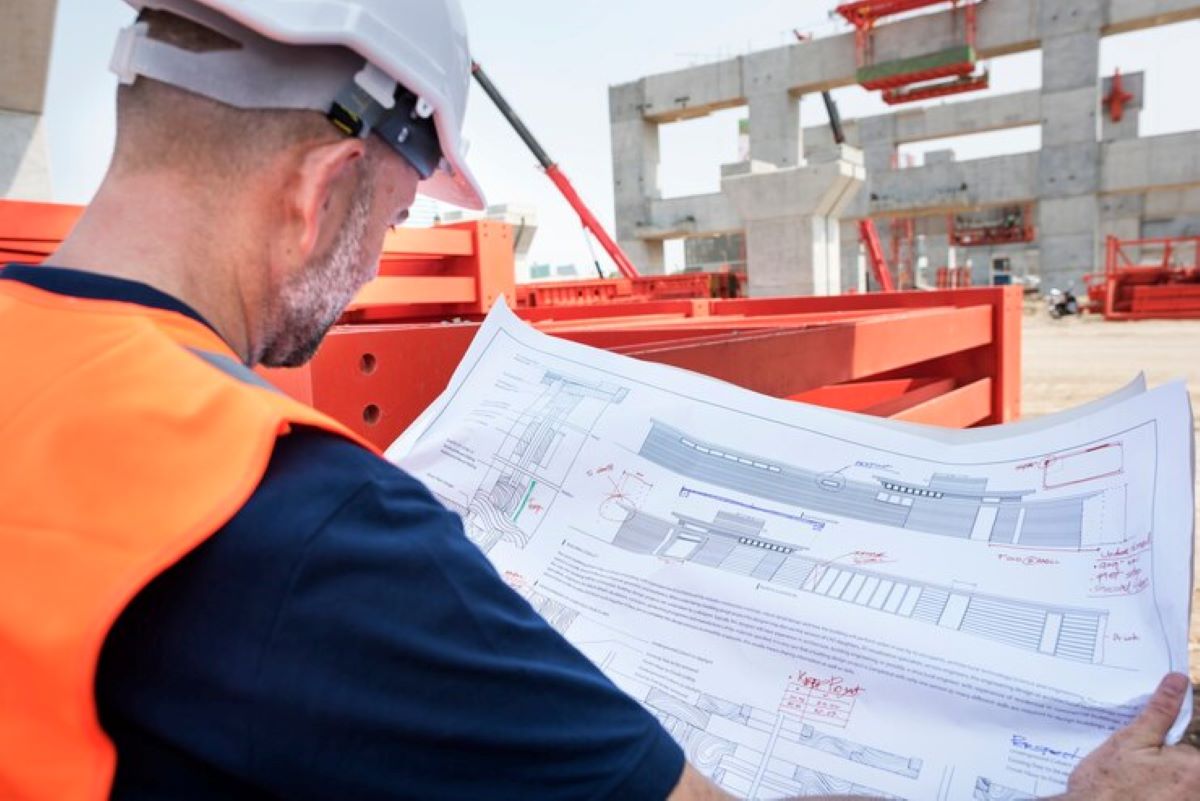Why Registered Surveyors Are Required for Legal Documentation
In the realm of property transactions, legal documentation plays a pivotal role in ensuring that all parties involved are protected and that the process is transparent. One key professional in this arena is the registered surveyor. Their expertise is not merely beneficial; it is often a legal requirement. This article delves into the significance of registered surveyors in the preparation and validation of legal documents, exploring their roles, responsibilities, and the implications of their work.
The Role of Registered Surveyors
Registered surveyors are qualified professionals who specialise in measuring and mapping land. Their work is fundamental in various sectors, including construction, property development, and land management. But what exactly do they do, and why is their involvement crucial for legal documentation?
Precision in Measurements
One of the primary responsibilities of a registered surveyor is to provide accurate measurements of land boundaries and features. This precision is essential for several reasons:
- Boundary Disputes: Clear and precise measurements help to prevent disputes between neighbouring properties. By establishing definitive boundaries, surveyors reduce the likelihood of legal conflicts.
- Property Valuation: Accurate measurements are vital for determining the value of a property. This valuation is often necessary for legal documentation, especially when buying or selling land.
- Compliance with Regulations: Many local authorities require detailed surveys before granting planning permission. Registered surveyors ensure that all measurements comply with relevant laws and regulations.
Documentation and Reporting
Registered surveyors produce detailed reports and documentation that are integral to legal processes. These documents often include:
- Survey Plans: These are graphical representations of the land, showing boundaries, easements, and other significant features.
- Certificates of Title: These documents affirm ownership and are crucial for legal transactions.
- Land Use Reports: These reports detail how land can be used, which is essential for compliance with zoning laws.
The accuracy and professionalism of these documents can significantly impact the outcome of legal proceedings, making the role of registered surveyors indispensable.
Furthermore, registered surveyors often utilise advanced technology such as Geographic Information Systems (GIS) and Global Positioning Systems (GPS) to enhance their surveying capabilities. These tools allow for a level of detail and accuracy that was previously unattainable, enabling surveyors to create comprehensive digital maps that can be used for various applications, from urban planning to environmental assessments. The integration of such technology not only streamlines the surveying process but also provides clients with a clearer understanding of their land and its potential uses.
In addition to their technical skills, registered surveyors must also possess a strong understanding of legal frameworks and land use policies. This knowledge equips them to advise clients on the implications of their surveys, including potential restrictions on land use or future development opportunities. Their expertise in navigating complex regulatory environments ensures that clients can make informed decisions, thereby fostering a smoother planning and development process. As such, registered surveyors play a pivotal role in bridging the gap between technical surveying and legal compliance, making their contributions invaluable in today’s ever-evolving landscape of land management.
Legal Requirements for Surveyors
In Australia, the role of registered surveyors is governed by strict legal requirements. These regulations ensure that surveyors possess the necessary qualifications and adhere to professional standards. Understanding these requirements is vital for anyone involved in property transactions.
Registration and Licensing
To practice as a registered surveyor in Australia, individuals must complete a recognised degree in surveying and gain practical experience. Following this, they must register with the relevant state or territory authority. This registration process includes:
- Assessment of Qualifications: Surveyors must demonstrate their education and experience meet the required standards.
- Continuing Professional Development: Registered surveyors are required to engage in ongoing education to stay abreast of changes in laws, technology, and best practices.
This rigorous process ensures that only qualified professionals are entrusted with the critical task of surveying land and preparing legal documentation. Additionally, aspiring surveyors often undertake internships or work placements during their studies, which not only enhances their practical skills but also provides invaluable insights into the day-to-day responsibilities of a surveyor. This hands-on experience is crucial, as it allows them to apply theoretical knowledge to real-world scenarios, thereby preparing them for the complexities they will encounter in their careers.

Compliance with Standards
Registered surveyors must adhere to various national and state standards, including:
- Australian Standards: These standards set out the minimum requirements for surveying practices, ensuring consistency and reliability.
- Ethical Guidelines: Surveyors are expected to conduct their work with integrity, ensuring that their findings are honest and unbiased.
Compliance with these standards not only protects the surveyor but also the clients and the public, reinforcing the importance of their role in legal documentation. Furthermore, surveyors are often required to collaborate with other professionals, such as architects, engineers, and planners, which necessitates a thorough understanding of various regulations and protocols. This collaborative aspect of their work underscores the importance of effective communication and teamwork, as surveyors must convey complex information clearly to ensure that all parties involved are aligned in their objectives and expectations.
The Importance of Registered Surveyors in Legal Documentation
The involvement of registered surveyors in legal documentation cannot be overstated. Their expertise ensures that all property transactions are conducted smoothly and legally. Here are several reasons why their role is critical:
Risk Mitigation
Engaging a registered surveyor significantly reduces the risks associated with property transactions. By providing accurate surveys and documentation, they help to:
- Avoid Legal Disputes: Clear boundaries and accurate land descriptions minimise the potential for conflicts between property owners.
- Ensure Compliance: Surveyors ensure that all legal requirements are met, reducing the risk of penalties or legal challenges.
By mitigating these risks, registered surveyors provide peace of mind to buyers, sellers, and developers alike.
Facilitating Property Transactions
Registered surveyors play a crucial role in facilitating property transactions. Their involvement streamlines the process by:
- Providing Essential Documentation: Surveyors prepare the necessary documents that are often required for legal transactions, such as contracts and title deeds.
- Advising on Land Use: They can provide insights into how land can be developed or used, which is vital for potential buyers and investors.
This facilitation is essential for ensuring that transactions are completed efficiently and legally, benefitting all parties involved.
See Also : Land Surveyor Near Me: How to Find Reliable Local Professionals
Consequences of Not Engaging Registered Surveyors
While it may be tempting for individuals to bypass the services of a registered surveyor to save costs, the long-term consequences can be severe. Here are some potential pitfalls of not engaging a professional:
Legal Complications
Without the involvement of a registered surveyor, property transactions may be fraught with legal complications. These can include:
- Boundary Disputes: Unclear boundaries can lead to disputes that may require costly legal intervention.
- Invalid Contracts: Legal documents that lack accurate information may be deemed invalid, leading to financial loss.
These complications can result in significant financial and emotional stress for all parties involved.
Financial Implications
Failing to engage a registered surveyor can also have dire financial implications. These include:
- Increased Costs: Legal disputes and rectification of errors can lead to unexpected costs that far exceed the initial savings from not hiring a surveyor.
- Decreased Property Value: Properties with unclear boundaries or unresolved disputes may suffer from decreased market value.
In the long run, the cost of hiring a registered surveyor is often far outweighed by the potential financial repercussions of not doing so.

Conclusion
Registered surveyors are an essential component of the property transaction process, particularly concerning legal documentation. Their expertise in providing accurate measurements, preparing essential documents, and ensuring compliance with legal standards is invaluable. Engaging a registered surveyor not only mitigates risks but also facilitates smoother transactions, ultimately protecting the interests of all parties involved.
In an ever-evolving property landscape, the importance of qualified professionals cannot be overstated. For anyone considering a property transaction, enlisting the services of a registered surveyor is not just a wise decision; it is a necessary step towards ensuring a successful and legally sound outcome.

